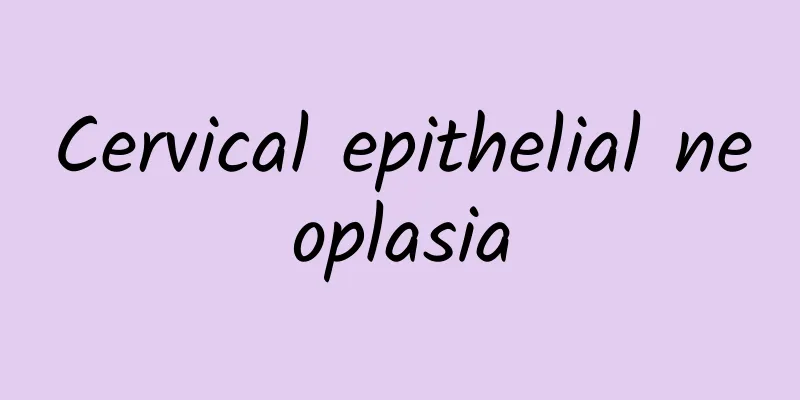What are the differences between curettage and abortion?

| Abortion means artificial miscarriage, which refers to a measure taken by women who accidentally become pregnant and do not want to have children. Abortion is quite harmful to women, but most of the time it is done out of necessity. There are many techniques for abortion, among which the most primitive method is curettage. This operation is particularly harmful. Let's take a look at the differences between curettage and abortion. I hope everyone can understand. Curettage is a type of abortion and there is no difference. Curettage is a method that uses a combination of clamping and electro-suction to remove fetal and embryonic tissue from a pregnancy. It can be used to terminate pregnancy within 11 to 14 weeks of pregnancy. To ensure that the curettage is carried out smoothly, preparations for cervical dilation should be made first. Indications: 1. Patients who voluntarily request termination of pregnancy between 11 and 14 weeks of pregnancy without contraindications. Hospitalization is required for pregnancies over 12 weeks. 2. Pregnant women within 14 weeks who are not suitable to continue the pregnancy due to certain diseases (including genetic diseases). 3. Those who have failed other abortion methods. Contraindications : 1. Acute inflammation of the genitals, such as pelvic inflammatory disease, Trichomonas vaginitis, fungal vaginitis, and acute cervical inflammation. 2. Acute infectious diseases of all stages or acute attacks of chronic infectious diseases, or serious systemic diseases such as heart failure, blood diseases, etc. 3. Patients who have recurrent vaginal bleeding during pregnancy or have a recent history of vaginal bleeding should not have a urinary catheter placed before surgery to prepare for cervical dilation. 4. Those whose body temperature is above 37.5℃ twice before the operation. Surgical steps : 1. Empty the bladder and take the lithotomy position. 2. Routine disinfection of the vulva and vagina before surgery. 3. To rupture the membrane, use a small curved oval forceps to insert through the cervical canal and along the flexion of the uterine cavity, find the cystic area and rupture the membrane with the forceps. Clear amniotic fluid will flow out. Wait for the amniotic fluid to flow out naturally or use a suction device to suck out the amniotic fluid from the cervical opening. 4. Use the curved oval forceps to penetrate deep into the uterine cavity and detect the attachment site of the placenta. When the placental tissue feels soft, use the oval forceps to clamp the placental tissue as much as possible and gently pull it downward to loosen and peel it off so that the placental tissue can be clamped out. When most of the placenta has been clamped out, the fetus can often be squeezed out by uterine contractions. Otherwise, use oval forceps to clamp different parts of the fetus separately. 5. Use negative pressure suction to clean the uterine cavity. After the placenta and most of the fetus have been clamped out, 10U of oxytocin is injected on the side of the cervix to promote uterine contraction. Then use a No. 7-8 suction tube to suction the uterine cavity for 1-2 circles at a negative pressure of 40.0-53.0kPa (300-400mmHg). Then use a medium-sized scraper to extend into the uterine cavity in the direction of uterine flexion, and gently scrape the uterine cavity in sequence until the uterine wall is felt to be rough and the uterus is contracted. Then use a probe to detect the depth of the uterine cavity, remove the cervical clamp, wipe the cervix and vagina, and remove the speculum. Examine the scrapings in detail to estimate whether they are consistent with the gestational age. If the main part is not removed, forceps should be used again until all of it is removed. |
<<: Why can water be squeezed out of the nipples when they are itchy?
>>: What should I do if my neck hurts below my right ear?
Recommend
These 6 bad habits can be described as “suicidal”, and many people fall into these categories!
Health and longevity are the goals and beautiful ...
What are hot flashes and night sweats?
For most men, they are afraid of having night swe...
What's wrong with the waist?
Everyone's work content is different. Some pe...
What is the disease with palpitations, chest tightness and shortness of breath?
In daily life, when it comes to blood pressure di...
Will eating egg yolk fruit make you fat?
Nowadays, many women are particularly concerned a...
How to make fried taro, crispy and nutritious taro
Taro is a common ingredient in our daily life. It...
What is the disease of men not ejaculating?
Normal men will experience ejaculation when they r...
Improve communication skills
Humans are social animals and have to deal with d...
What to do if your ovaries are blocked
Due to the increasing pressure in life and work, ...
What to do if you have toothache one year after filling
In daily life, many people do not pay attention t...
What causes swelling in the legs and feet?
Swelling of the calves and feet is quite common i...
What are the effects of Alisma?
Traditional Chinese medicine has many uses. It ca...
Inverted nipple with odor
For women, if the nipples are inverted and have a...
What are the effects and functions of Hetian jade?
Nowadays in society, many people like to wear jew...
Bloating and farting during menstruation
Symptoms such as bloating and flatulence during m...









